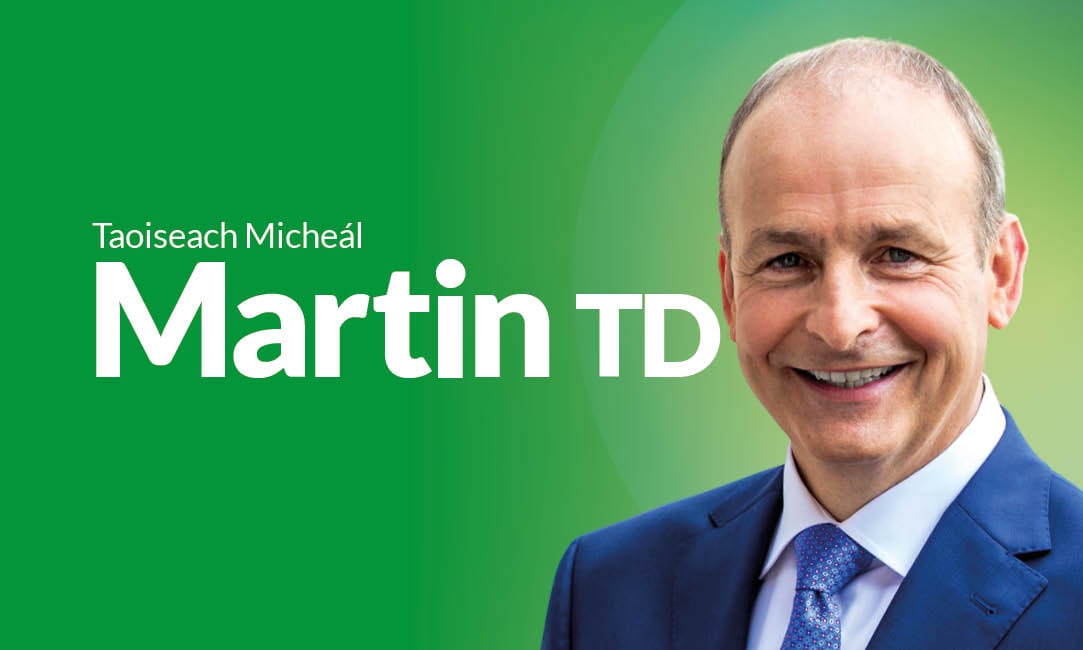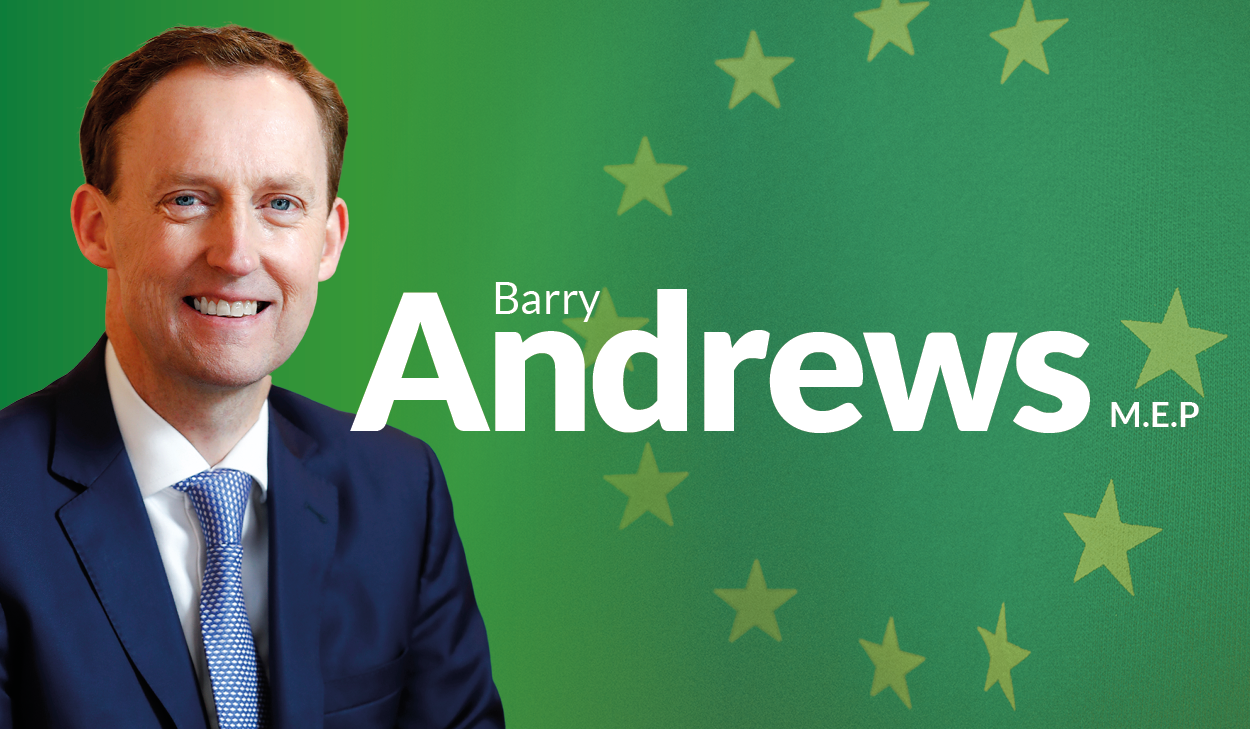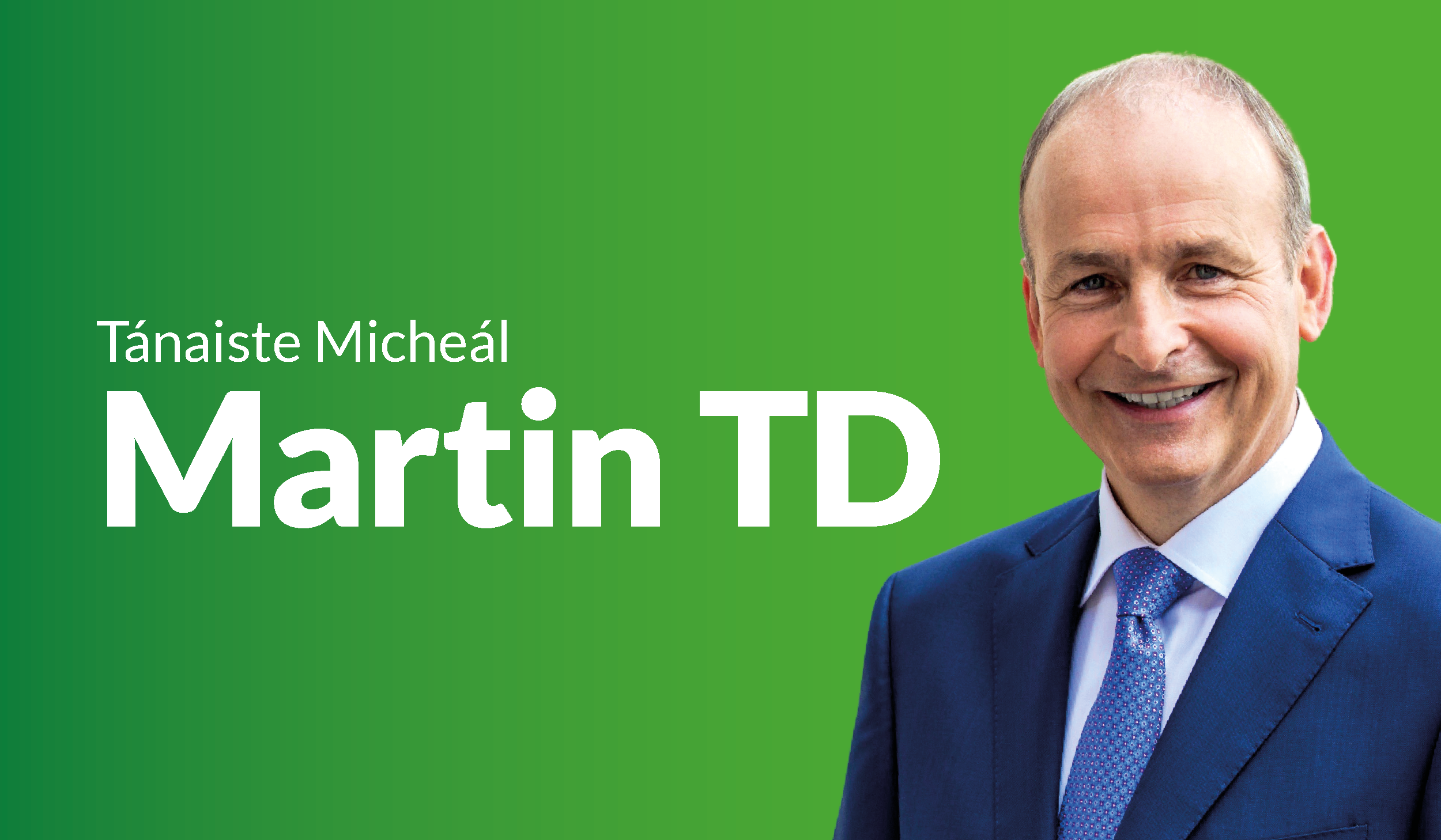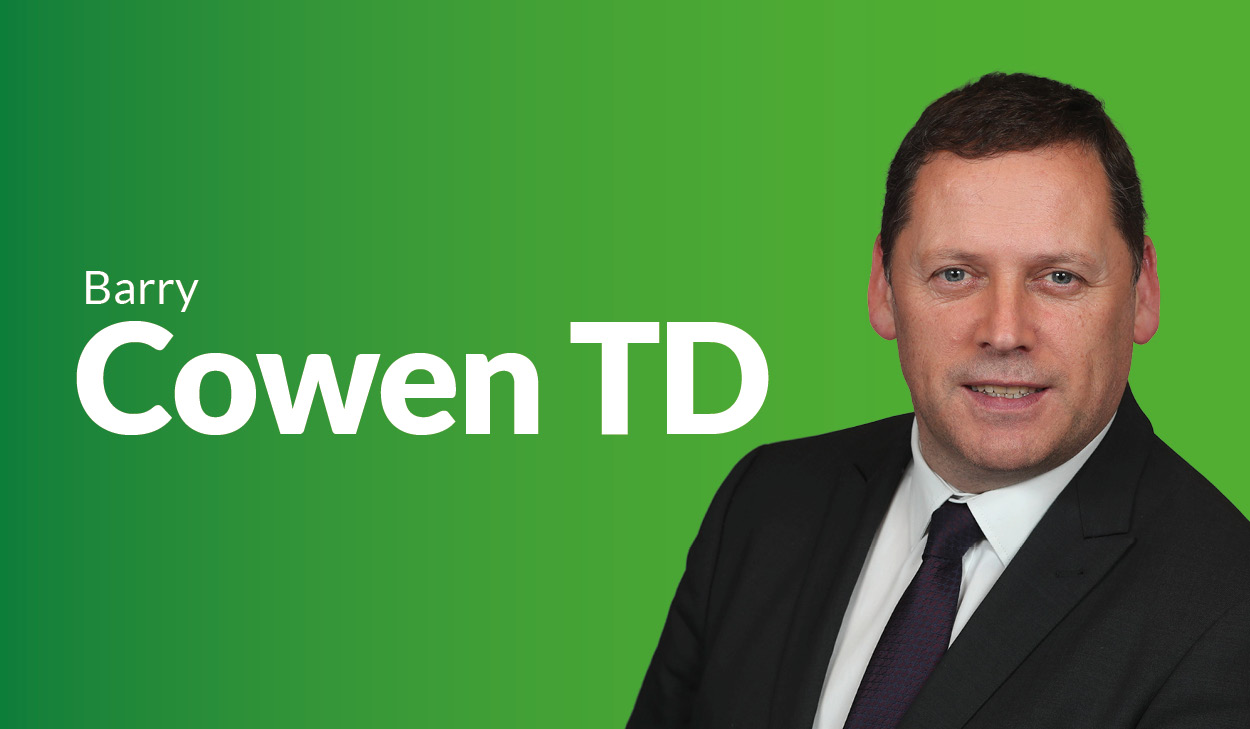Dáil debate on Consultative Forum on International Security Policy Report
Published on: 22 November 2023
Opening remarks by Tánaiste and Minister for Foreign Affairs and Defence, Micheál Martin
I want to talk with you today about the State’s approach to international security.
This is my first time to address the House in detail on the outcome of the Consultative Forum on International Security Policy since it took place in June this year. I want to thank the many colleagues who participated in the sessions, particularly those from the Joint Committee on Foreign Affairs and Defence.
I also want to pay tribute to the many members of the public who took the time to attend, watch online or to submit views in writing. It was my intention when launching this process to start a national conversation and I believe we successfully did so.
The Forum was ably chaired by Professor Louise Richardson who brought her extensive academic expertise to bear and managed the proceedings over the four days with grace and skill.
Professor Richardson’s report was published a number of weeks ago. Having now reflected on its findings, I wish to address the future direction of our international security policy today.
When I first addressed the Dáil on the subject of a Consultative Forum last May, I set out the security landscape that we face, focusing on the implications of the full-scale invasion of Ukraine by Russia, for European security more broadly, as well as for our own security in Ireland.
In the intervening period, the situation in Israel and Gaza, in the aftermath of the heinous terror attack by Hamas on 7 October, is bringing untold suffering to far too many civilians, including children, and has ramifications across the region and beyond.
Although the subject of today’s discussion is not the Middle East, I do want to outline the core principles underlying the government’s position.
The Middle East Peace Process has long been close to the hearts of the Irish people. However, it is also striking how the current situation has touched us so directly.
We tragically lost one of our own citizens, Kim Damti, in the attack on 7 October. Emily Hand, an Irish-Israeli 9 year old, whose father Tom and sister Natali I met in Dublin last week, is a hostage in Gaza.
The Department of Foreign Affairs has been working tirelessly to support Irish citizens in Gaza, and my own visit to Egypt, Israel and Palestine last week saw the exit of just over fifty citizens and dependents through the Rafah crossing. They are now back in Ireland and my Department will continue to support the small number of citizens and immediate dependents remaining.
Members of our Defence Forces also continue to bravely contribute, in increasingly challenging circumstances, to peacekeeping efforts in the region, including on the border between Israel and Lebanon.
Across the world – including here in Ireland – instances of hate speech, disinformation, islamophobia and antisemitism have been increasing, especially online.
There is no doubt that the Government’s response to this crisis has been shaped – and indeed aided – by many of the areas highlighted during the Forum. Our commitment to promoting international law and ensuring accountability. Our commitment to the United Nations and multilateralism. Our commitment to humanitarianism and peacekeeping.
These are the values that underpin our response to this crisis. Moreover, these are the values that we apply equally to all crises. I can assure you that this has been acknowledged and appreciated by our partners in the region during the course of my intensive engagement over the past six weeks.
These events also offer a clear illustration, if illustration were needed, of the importance of a strong and independent Irish foreign policy.
Professor Richardson’s report makes clear that there is a striking degree of consensus on many aspects of Ireland’s international engagement.
This is important. It is too easy to highlight divisions, encourage polarisation and play politics with foreign, security and defence policy issues.
But these issues, at this time, are far too important for that.
So let’s start with what we agree on.
First, a theme that came though very strongly in the Forum was that Ireland should continue to be active in the maintenance of international peace and security by supporting the global multilateral system, with the UN Charter at its heart; and by continuing to vocally defend international law, particularly international humanitarian law, and human rights.
Our contribution to peacebuilding has meant that we engage for the long-term; that our commitment to countries affected by conflict and injustice, and to those trying to rebuild after active conflict had ended, is one that is serious and sustained.
Sometimes our work is public and recognised; more often, it is below the radar. We link what we do on the ground with what we say around decision making tables in New York and Brussels and Geneva and vice versa; and we put our money where our mouth is, by investing in peace and security, and by focusing on those most vulnerable to conflict and extreme poverty.
Our engagement internationally reflects our own experience of building peace on this island. One example of this is our engagement in the peace process in Colombia, which mirrors the importance of the international support we secured for the peace process in Northern Ireland.
This week, as we mark the 7th anniversary of the signing of the 2016 Peace Agreement with the FARC, I am particularly proud that Ireland has been acting as a guarantor for the dialogue process with the EMC, as part of the Colombian Government’s Total Peace policy. Our consistent political support, engagement on issues such as human rights and women’s participation, our lesson sharing as well as targeted funding, are all making a real difference on the ground.
In Ukraine too, we are working to translate political support into practical implementation of President Zelenskyy’s Peace Formula, which we believe offers a comprehensive approach to securing a just and lasting peace. We are engaged directly in a number of areas covered by the plan, such as nuclear safety, food security and the restoration of justice. Our own history has taught us the importance of accountability in restoring trust and building a prosperous future.
Indeed, those who attended the Forum will have heard directly from many Irish men and women working across multiple organisations and continents for a more peaceful and more just world.
To give just some examples: We heard from former members of the Defence Forces, such as retired Major General Michael Beary, who has been leading a UN Mission to support peace in Yemen; from former senior Garda, Maura O’Sullivan, now working in Ukraine to reinforce that country’s policing and rule of law structures; from Kate Fearon, a founder member of the Northern Ireland Women’s Coalition now working with the OSCE; from Patricia Lewis, a leading expert in non-proliferation and disarmament and a recent recipient of the Presidential Distinguished Service Award; and from Renata Dwan, who has spent decades working with the UN on conflicts in Afghanistan, the DRC, Mali and Syria.
It is these kinds of tangible contributions that represent a real life expression of our foreign policy values. Our term on the UN Security Council taught us many lessons; one of the most important was that we can be most effective when our advocacy at multilateral level is informed and guided by detailed, nuanced, practical experience, working directly in communities affected by violence and conflict.
Our diplomats and military women and men need to both to be at the top tables and also getting their boots muddy. And I am very proud that they are more than eager to do so.
What we heard at the Consultative Forum is that the Irish people are proud of this work and want us to do more of it. And that is what I want us to do. One practical outcome from the end of our Security Council term was the establishment of a new Peace and Stability Unit in DFA. This unit will develop and sustain partnerships in peace building and conflict prevention across the globe in conflict affected states. Our unique history and relationships of trust leave Ireland well placed to support partners in this regard.
A further area of agreement across virtually all speakers and contributors to the Forum was the need for investment and support in our Defence Forces.
When the Commission on the Defence Forces delivered its report in February 2022, it recommended significant and wide-ranging changes for the Defence Forces and defence provision in Ireland, including changes to high-level structures, defence capabilities, organisation, culture, human resources and funding.
I am deeply committed to the positive transformation of our Defence Forces into a modern, agile military force, capable of responding to increasingly complex security threats. This is reflected in the Government’s approval of a High-Level Action Plan to progress the recommendations and to commit the State to move to Level of Ambition 2, with a commensurate increase of the Defence budget from €1.1 billion to €1.5 billion, in 2022 prices, by 2028.
The Government has followed through on this commitment by increasing spending in Defence in Budget 2023 and 2024.
Just yesterday, I published the Detailed Implementation Plan for the Report of the Commission on the Defence Forces following noting by Cabinet.
It has been a priority for me that this plan is both ambitious and credible, recognising that transformation efforts of this magnitude take time and are only successful if they are built on solid foundations.
This is a once-in-a-generation transformation. I am confident that we can and will build on the strong foundations developed and realise our shared ambition for a transformed, modern, forward looking Defence Forces. This is part of our ongoing investment in our Defence Forces; in its people, infrastructure, capabilities and culture
Ceann Comhairle,
Ireland has always played an essential role for peace, a fact tangibly demonstrated by our unbroken and distinguished involvement in UN peacekeeping since our first deployment in 1958.
But we also need to look honestly at the challenges to that engagement. It is my clear view that we cannot ignore the systemic challenges facing the UN Security Council.
That is most evident in how difficult it is to agree or renew UN peacekeeping mandates, which we saw at first hand while on the Council in 2021 and 2022. It is striking, for instance, that that not a single new peacekeeping mission has been authorized by the Security Council since 2014.
But it is much more than that. Let’s be clear that many crises that the Council deals with never get near the stage of discussion on a peacekeeping mission or even on a comprehensive peacebuilding plan.
Look at Ukraine – for reasons that we all know, the Council has not even issued a statement on the issue, never mind agreed on a Resolution.
Look at Ethiopia – we worked tirelessly to prevent atrocity crimes and to bring to light grave violations of international humanitarian law. And while I am proud of our engagement and believe that this meant that the Council was ultimately able to play a role, the Council was never even able to agree to formally place the issue of Ethiopia on its agenda.
Look at what is happening now in Israel and the occupied Palestinian territory. It took almost 6 weeks after the attack by Hamas in Israel and the terrible loss of life in Gaza for the Council to agree on a Resolution calling for humanitarian pauses.
The implications of this for Ireland and our current policy is simply something we have to take seriously. We cannot just revert to sound bites. We have to be honest about the fact that in respect of many of the worst crises internationally, where rapid, impartial and decisive international action is desperately needed, the Council has not been able to act.
As matters stand, the legislation governing the despatch of contingents of the Defence Forces for overseas peace support operations ensures that these may only take place where that deployment is approved by the Government, approved by Dáil resolution if the proposed deployment is more than 12 personnel, and that the operation in question is mandated or authorised by the UN.
In effect, this ‘Triple Lock’ system hands the five permanent members of the Security Council a veto over our national sovereign decision to deploy troops to peacekeeping missions as we see fit.
Of course, as we saw over the course of the Forum, there is no single consensus over how to proceed with the Triple Lock. But we saw ample evidence of other options on how to allow agility and responsiveness while ensuring our actions comply with the highest standards of international law.
It would therefore make sense, I believe, to amend our existing legislation in a manner which would allow us to respond to crisis situations with more agility, and where in making these important decisions, we are not surrendering our sovereignty.
I have therefore instructed officials in the Department of Defence to prepare legislative proposals without delay that would govern the future overseas deployments of our Defence Forces.
These could, for example, allow us to despatch Defence Forces personnel to multilateral missions overseas where these are organised by a regional organisation such as the European Union or African Union, or where the host country is requesting such support from the international community.
While these proposals may not necessarily always include a role for the UN Security Council, they will of course remain fully consistent with the principles of the UN Charter and international law. By making this change in the future, we would be removing the veto power of Security Council members over Ireland’s engagement, while safeguarding the essential link with international law and good governance.
During the Consultative Forum, many contributors also expressed a clear view in favour of working more closely with our international partners.
I firmly believe we should broaden and deepen such cooperation, either where we can add value or benefit from the expertise of others. For a country of Ireland’s size – and for a country that has always been outward looking and whose foreign policy is based on partnership – it is sensible that we would look at the options available for partnership, rather than go it alone.
We are already doing this successfully as active members of the EU’s Common Security and Defence Policy, including through Permanent Structured Cooperation or PESCO.
Rather than some notional European army, what PESCO provides for in reality is a menu of projects which allow us to work with and learn from EU partners, in a way which is suitable and beneficial to our security needs.
The area of maritime security is an excellent example of where we are well-placed to take advantage of training and capability development offered by our European partners. I am pleased to say that Ireland became an observer in the Critical Seabed Infrastructure Protection (CSIP) project earlier this year. But we should go further and do more.
In that spirit, we are concluding a new Individually Tailored Partnership Programme, or ITPP, through NATO’s Partnership for Peace. It should not be necessary for me to say it again but for the avoidance of doubt, let me once again be entirely clear: this government has no intention of taking any steps towards NATO membership or altering our policy of military neutrality. That is simply not on the agenda.
But I have no hesitation in stating that the Partnership for Peace programme in place since 1999 has offered us valuable opportunities to enhance our defence capabilities. Importantly, the focus on interoperability of our Defence Forces has greatly facilitated Ireland’s participation in UN and EU missions overseas, including our current engagement in the Irish-Polish battalion in UNIFIL.
The latest ITPP represents an opportunity for Ireland to continue this exchange of expertise and training and broadens our engagement into new areas which will benefit Ireland, including cooperation on cyber security, resilience and maritime security.
Our continued commitment to a principled values-led foreign policy does not exclude a dedicated and clear-eyed focus on our own national security. As I have said before, Ireland cannot rely on our geographic isolation for our security, nor isolate ourselves from world events.
In fact, as the discussions at the Forum clearly showed, the nature of the threats we face are unlike those we have seen before. They may include cyber-attacks, disinformation campaigns that seek to undermine our social cohesion, or interference with our energy and telecommunications infrastructure.
The havoc wreaked by the malicious actors who attacked the HSE in 2021 offers a salutary reminder that neutrality is no safety blanket when it comes to such threats. The response to the cyber-attack also put into stark relief the essential need for close co-operation with international partners on security issues.
We have already taken important steps in recent years to bolster our national security institutions, for example through the allocation of significant resources and capabilities to the National Cyber Security Centre.
Internationally, Ireland’s membership of the European Centre of Excellence for Countering Hybrid Threats has allowed us to take advantage of world-class training and policy development opportunities.
But there was a clear consensus amongst contributors to the Forum that it is now time to take forward the next steps that will be essential to strengthening our national security arrangements.
I therefore make a commitment today that the Government will deliver a National Security Strategy in the coming months. The strategy will lay out the threat environment and clearly set out the systems and structures required to address these.
It will also make reference to the development of a fully functioning National Security Authority to deal with the protection of EU classified information as well as personal and facilities security clearance, underpinned by appropriate legislation and furnished with the resources it requires.
As an island nation, the question of our maritime security is paramount. I also am announcing today our intention to develop a maritime security strategy, with the necessary resourcing, accompanying legislation and decision-making systems in place. This strategy will have a particular focus on subsea infrastructure.
It is also important that the actions and services we deploy in support of our national security are underpinned by robust and modern legislative arrangements and work will be progressed across Government to modernise and enhance those arrangements, including with respect to information gathering and sharing, cybersecurity and, crucially, independent oversight of our security legislation.
Ceann Comhairle,
As I have repeatedly stated, the changed geopolitical context and wider threat environment in Europe calls for consideration of our approach to national, and international security issues.
The Consultative Forum offered us an opportunity to start a national conversation, one based on facts and evidence. It was a chance to bring together leading international experts to discuss the matters of security most important to us in an open manner, with the opportunity for every citizen to take part.
The actions I have set out today will allow us to realise a vision of a confident and forward-looking State, one that does not shy away from playing an active role in upholding international peace and security or efforts to build peace and uphold international law.
At the same time, I want to ensure that we can be proud to claim a well-resourced and highly-skilled Defence Forces; with cutting-edge security infrastructure; and responsive and dynamic systems to deal to whatever threats we may face.
I am committed to taking this process forward and I hope my colleagues in the House will join with me in doing so.
ENDS



